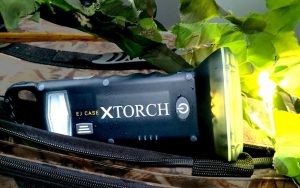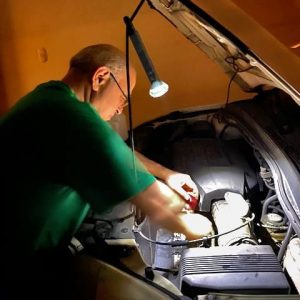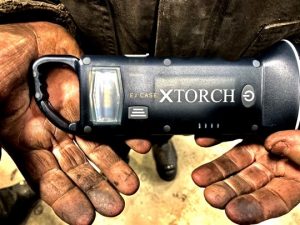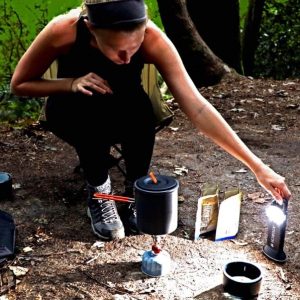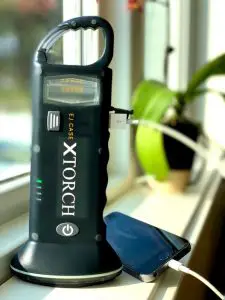We all live in a house of cards; one that is increasing vulnerable to collapse with the slightest disruption. Here in the US, we expect the power to turn on when we flip the switch, the water to run clean from the kitchen tap and for the phone service to be there when we need to call for help.
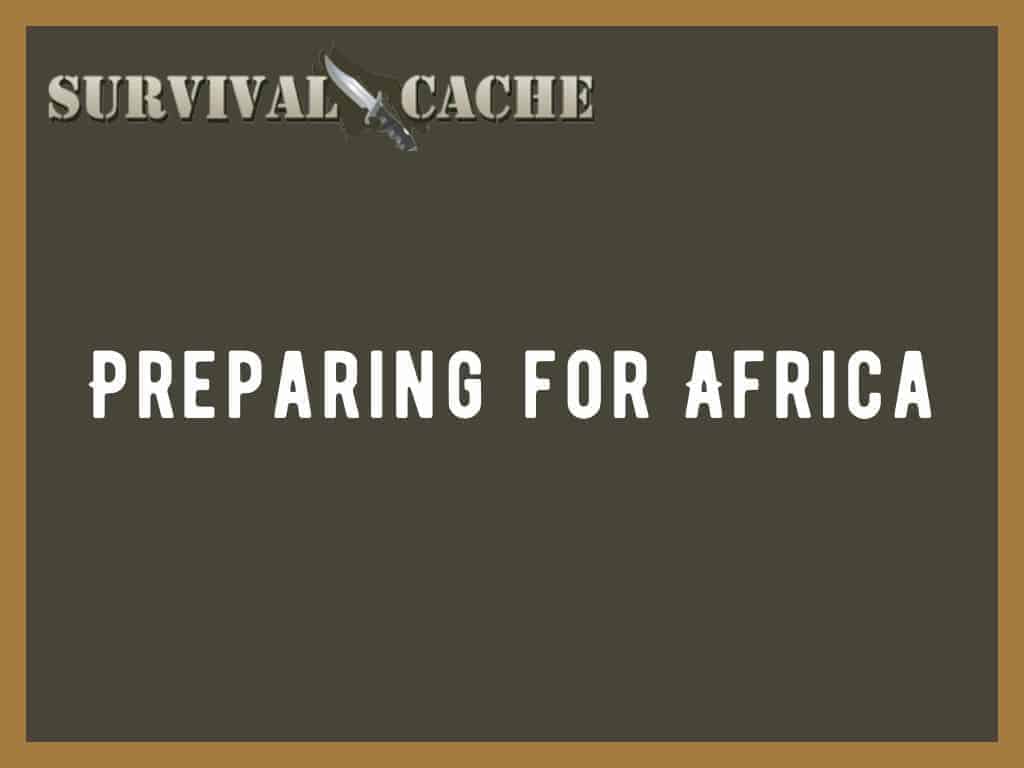
We pay our bills and do our jobs and expect to have certainty as part of that deal, but now, in light of what has occurred in the past 6 months, we have all become so much more aware of the uncertainty of everything.
Now, imagine what it might be like to live in an impoverished, dictator run, country in Africa. Where the military police stops you at will to extract bribes, collectable water is available only after big rains, the meager electric power system hardly every works and uncertainty is the only thing you can count on. Preparing for Africa is quite different than preparing for emergencies or the unexpected in the US.
SKIP AHEAD
Day-to-Day In Africa

Keidy, my wife, and I volunteered in Equatorial Guinea, Africa, for a school feeding program, run by a non-profit. Every day we loaded our worn-out Nissan 4X4 truck with 80- pounds of frozen chicken parts, 150 pounds of rice and 50 pounds of beans, and drove as quickly as we could through the potholed streets so that the meat would not melt under the baking sun. We delivered the food to three schools around the city of Bata, where we closely supervised the cooks as they prepared the food, so that it would not be not stolen before reaching the hungry mouths of the over two hundred hungry kids we fed each day. The Guinean women cooked in huge steel, boiling pots, over an open gas flame, that added to the kitchens’ oppressive heat.
One night Keidy and I both felt weak and feverish. Keidy, having grown up in the Dominican Republic, seemed impervious to all forms of parasites and tropical illness in this corner of the world, so we were surprised when she became suddenly so sick. I was just getting over my fourth bout of Malaria because my American camping mosquito netting was not tough enough to handle the nightly swarms of infected mosquitos. – I am a northern Minnesota guy, white as light bulb and apparently easy prey to anything other than frostbite.
Survival Prep For Your Environment
I thought I had brought all the necessary gear for just about any occasion during my three month stay in Africa, but my gear and training was good for the USA but not Africa; consider the 100 degrees daily heat, humidity so high that electronics quickly corrode, malaria and dengue infected mosquitoes in every corner, the lack of up to date medical resources, swarming ants that fill computers, no clean water anywhere and the complete lack of reliable light and power.
As Keidy’s condition grew dire, I contacted our friends, the Cuban doctors with whom we had just completed a medical outreach in the mountains. We used my new and expensive flashlight, that needed to be smacked against the wall to bring back to life, in order to see the thin, red line of the thermometer readout. The flashlight batteries had formed a thick, white film on both ends and would not function without persistent persuasion. Once again, the power was out and the whole city was dark. The fans quit working and we sweltered in the still air of our little house. The doors where lock tight and the small, barred windows where the only access to a slight breeze.
The Doctors confirmed the symptoms of, a high fever, sweats, night delirium, disorientation and dehydration. Keidy was in critical shape but there was not clear diagnosis. The nearly toxic treatment they prescribed was a cocktail of quinine, antibiotics and other anti-malaria medications – each to be administered on a strict time regiment. But first we had to find the medications that were spread across the city at the homes of various friends.
I prayed as I drove through the confusing web of back streets with Dr. William. The whole city was without power; the only intermittent lights were those of candles and kerosene lanterns, dimly glowing yellow, in the windows of the tin roofed houses. We moved slowly to avoid the groups of people that would suddenly appear out of the complete darkness on the streets. We could only see the white eyes and white teeth of their dark faces as we approached with our headlights.
Survival is about Relationships
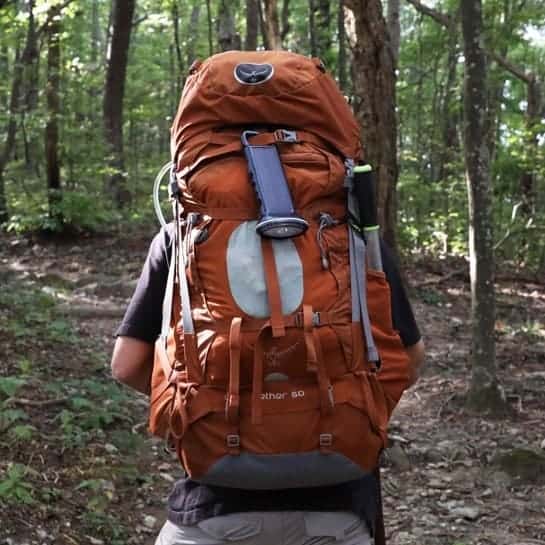
There was zero chance of finding a well-stocked pharmacy and the hospitals where no more than a few rooms with stained walls and unattended, steel bed frames.
I knew we had a limited amount of time to get the medications to Keidy. And although I was not well prepared for emergencies in Equatorial Guinea, we did have friends to help us, gas in the truck, extra water, a map and a plan. In developing countries, survival is often a matter of the relationships you have. It is more difficult to be independent and well prepared when there are few resources to fall back on. If we were to have encountered any obstacle during our trip across town, – being stopped by the military police or an engine problem- Keidy’s life would have been in greater danger.
The night was long as we cross crossed the city to collect the medication and the correct hypodermic needles that Keidy waited for. Upon reaching home, the gravel of the driveway crunched under our feet in the darkness, signaling that we were on the right path to get to the front door. The silent house showed only as a shadow against the night sky. We found Keidy under her mosquito netting, sweating profusely in bed. She was suffering, only in the way one does when being gripped by a disease that challenges your mortality. You feel an evil presence in your very heart. Dr. William finally found a vein that had not constricted too much due to dehydration and started the IV. Then he left, to return home to sleep for what was left of the night.
By night two my “high-end” flashlight were completely dead and I was forced to use candles as I played doctor to my fiancé. Throughout that long night and for the next 48 hours, I stayed by Keidy’s side, doing my best to deliver the correct course of pills and IV infusions to keep her alive, wondering if she would survive. I spent my extra time filtering dirty water to drink and trying to make a palatable meal out of the dried beans and rice we had stored away.
The next few days extended to what seemed like weeks, but slowly Keidy returned to health. The regime of medications continued to give her nightmares and daily hallucinations, but those effect wore off with time and soon she was making jokes about how good she must be looking- all gaunt and weak.
Keidy survived and went on to spend another 6 months feeding those school kids their daily lunches. She and I have now two great kids of our own and have relocated to frosty Minnesota- where we have absolutely no threat of being infected with Malaria. But, we remain acutely aware of how the unexpected can be life threatening. In Africa, people expect services, their governments and systems to break down and in turn are less reliant on them. Each day is a challenge that does not leave the opportunity for complacency. Being prepared is, without exaggeration, a matter of life and death. We see here in the US, our neighbors driving to the store, certain that the street lights will work and that small item they are lacking will be available on the shelf. Many of us here expect the future to be just as the past has been. But, in a house of cards, this may not be the case.
Lessons Learned and XTorch Born
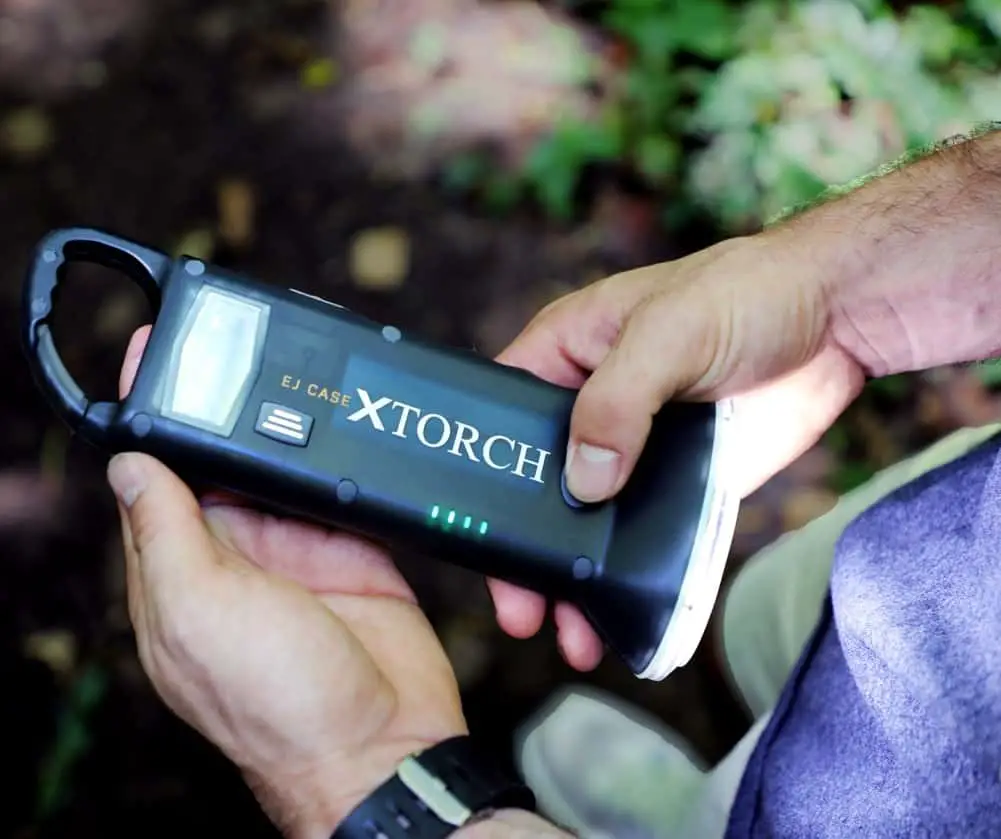
From our lessons and challenges in Equatorial Guinea, we were inspired to develop a rechargeable, solar-powered light/lantern and backup battery device called the XTorch.
It is tough enough for use in developing countries, supplies up to 48 hours of light, glows in the dark and it even floats. The internal electronics are coated to resist corrosion and the firmware makes for highly efficient use of the internal, rechargeable battery. Leave it in the window sill and with sun, it is always solar charging or plugs it into a USB adapter for a quick charge. It even holds it charge for years while in storage.
The XTorch is an import asset for being prepared; for disasters and emergencies, because the unexpected will always happen. When the power goes out at home or off-grid, light and backup power is essential for survival.
(We donate at least 25% of our profits to humanitarian organizations, helping people who live without reliable light and power around the world. The XTorch now serves in over 30 countries for disaster relief support.)


